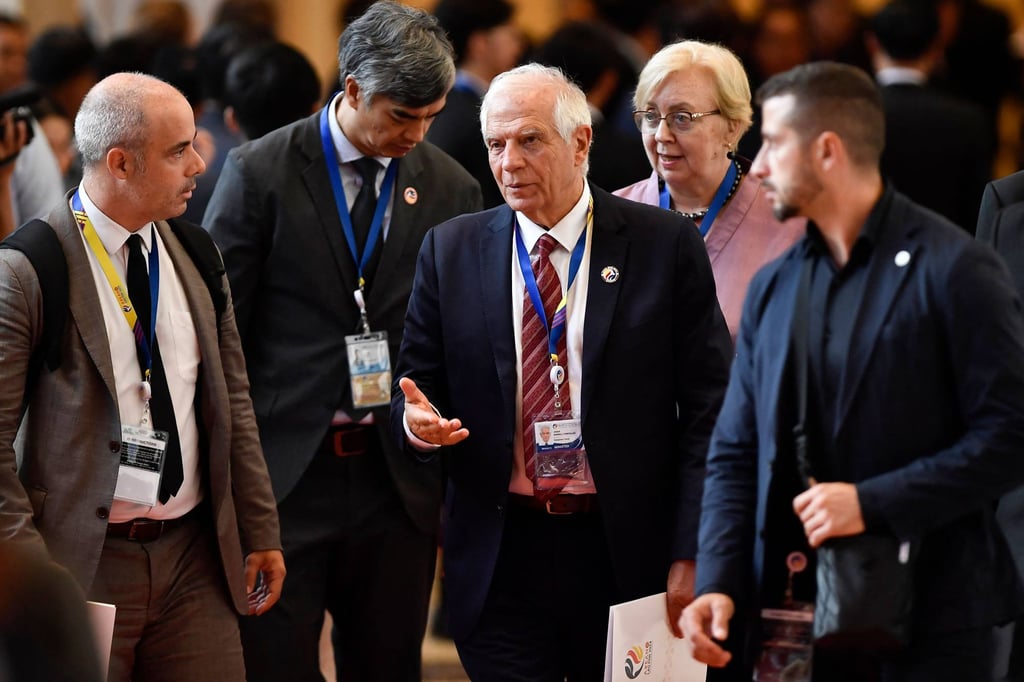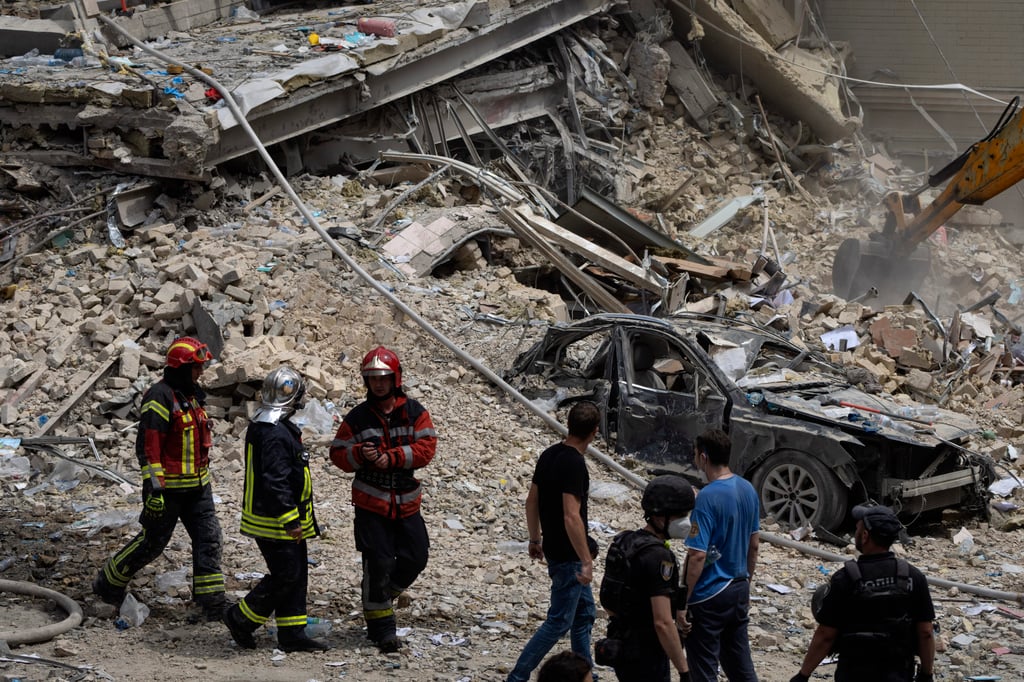EU disputes China claim that it supports Beijing’s proposal to end Ukraine war
Senior EU sources said Borrell did not use those words. A statement from the bloc’s External Action Service later in the day tried to correct the record.

The behind-the-scenes pushback highlights the sensitivity of the issue: while Brussels continues to ask for Beijing’s help in ending the war, launched by a Russian military invasion in February 2022, it fears China is moving ever closer to Moscow.
While discrepancies in diplomatic records are common, they are rarely egregious enough to cause major outcry. In Europe, the Chinese foreign ministry is widely seen to publish its statements quickly to help steer the narrative.
Some governments have tried to counter this. For example, a concerted effort emerged last year when touring Eurasian affairs diplomat Li Hui visited Warsaw to push the Polish version out first, so that journalists would not rely on Beijing’s take of events to guide their stories.

In the latest instance, China’s foreign ministry has hit an especially sensitive European nerve. Beijing claims it is neutral in the war, but is broadly seen in the West to have sided with Russia in the first major armed conflict on European soil in a generation.
Shipments of dual-use items to Russia have escalated in recent months, various research papers have shown, while both Kyiv and Brussels accused Beijing of trying to “sabotage” a Ukraine-backed peace summit in Geneva last month.
In the run-up to the summit, the Chinese foreign ministry was phoning embassies in Beijing to promote an alternative Sino-Brazilian proposal.
That plan would see Russia’s security claims represented, Moscow given a seat at the table and “fair discussion of all peace plans”, EU sources said.
Europeans, meanwhile, have backed Ukraine to the hilt rhetorically, diplomatically and financially.
A senior EU official said the read-out of last week’s bilateral summit was the “most serious effort” they had noticed in Beijing’s attempt to set the narrative.
A second diplomatic source accused the Chinese foreign ministry of trying to “put words in Europe’s mouths”.
“I am convinced that a just peace in Ukraine is in China’s strategic interests and China’s role as a global force for peace is important,” Kuleba told Wang, according to Kyiv’s version of the meeting, which said he also briefed the veteran Chinese diplomat on the Swiss peace talks.
In Beijing’s official statement, Kuleba “attaches importance to China’s opinions and has carefully studied the ‘six-point consensus’ reached by China and Brazil on the political solution to the Ukrainian crisis”.
“Ukraine is willing and ready to engage in dialogue and negotiations with Russia,” read China’s account. “Of course, the negotiations should be rational and substantive, aiming to achieve a just and lasting peace.”